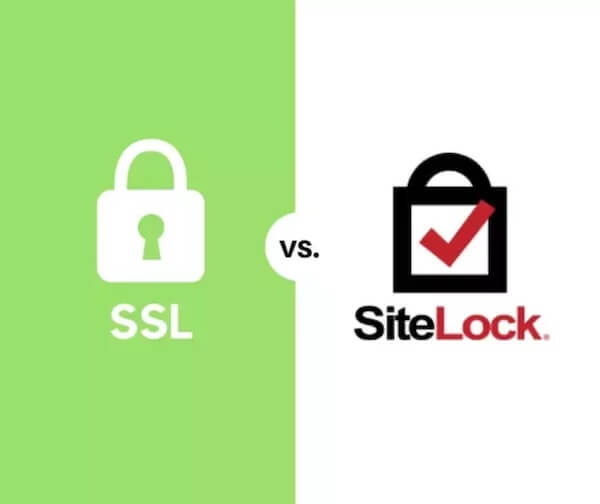SSL and SiteLock are two different concepts having totally distinct, yet complementary purposes.
SSL
The SSL protocol, (it’s still called “SSL” although it was actually replaced by theTLS (Transport Layer Security protocol), has been designed to protect the data exchanged between two machines (usually the client and the server).
It’s the engine of the encryption and decryption, being based on the Public Key Infrastructure (PKI) framework and its asymmetric cryptography (public & private key pair).
SSL Certificatesuse the SSL protocol to encrypt the data transferred between a browser (client) and a website (server). The SSL Certificate’s purpose is to authenticate the website’s owner and ensure an encrypted connection.
SiteLock
On the other hand, SiteLock provides a set of security tools and solutions which protect websites and web servers from different threats and vulnerabilities (such as malware, viruses, hackers, bot attacks, identity thefts, etc.) through prevention or by finding and automatically fixing them in case of occurrence.
SiteLock services include:
- Scanning & Malware Removal
- Code Source Analysis
- DDoS Protection
- Web Application Firewall
- Content Delivery Network (CDN)
- PCI (Payment Card Industry) Compliance
SSL vs. SiteLock
SSL enables HTTPS, displays the padlock next to your URL (makes your website trustworthy), encrypts the server-browser connection and boosts your website’s ranking on Google Search results while SiteLock protects your website from hackers and malware.
Therefore, while SSL secures web connections and the data exchanged during them, SiteLock protects the database of your website and ensures its integrity.
So, even though their purposes are distinct, they’re actually complementary since both SSL and SiteLock are used to secure your website.
Let us know if there’s anything I can help with your web security requirements today. We are always happy to help, so do feel free to have a live chat with our helpful sales support.




